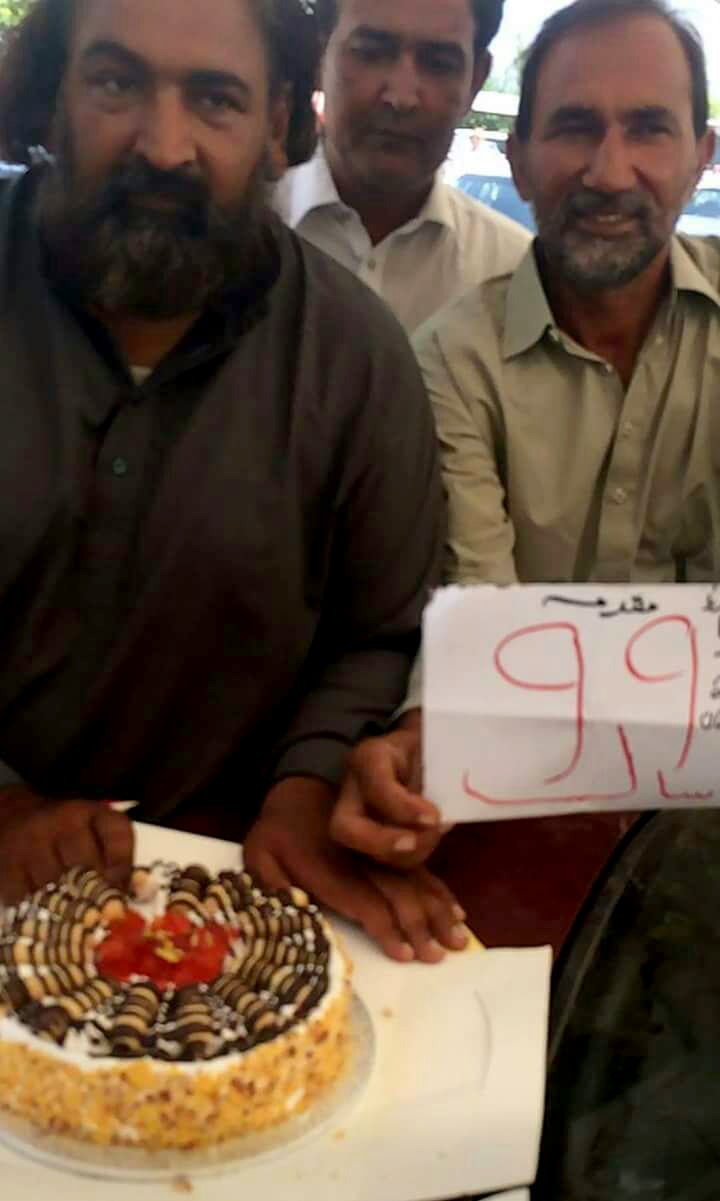Complainants of a pre-Partition property inheritance case celebrated its 99th anniversary on Thursday by cutting a cake in the compound of the Supreme Court (SC), South Punjab News reported.

The case, which dates back to 1918, revolves around a dispute over the inheritance of 700 acres (5,600 kanals) of land in Bahawalpur. It was transferred from a Bahawalpur court to the apex court in 2005.
A three-judge bench headed by Chief Justice of Pakistan Mian Saqib Nisar heard the case. However, due to the absence of both the prosecution and defence lawyers, the case was adjourned.
The complainants, who travelled from Bahawalpur to Islamabad, claimed their elder Shahabuddin, son of Sher Khan, was the owner of the land. He died in 1918, and the dispute has been going on since then.
There are an estimate 2 million pending court cases in Pakistan to date, with an approximate 30,970 pending before the Supreme Court.
The backlog may be indicative of a weakened criminal and civil justice system delivery mechanisms.
Without more vigorous implementation of existing rules and procedures, say jurists, and extensive judicial reforms, the log jam is unlikely to be settled.
It is next to impossible that, with the existing number of judges, prosecutors and courts, these cases are likely to be resolved in the near future.
Even a marginal reduction in these figures is impossible, say legal observers, unless substantial amendments are introduced to the Pakistan Penal Code, the Civil Procedure Code, the Criminal Procedure Code and the Evidence Act.
Another way to reduce the burden on courts and prisons is alternate dispute resolution mechanisms for lesser offences.
When judges are overburdened, they prefer to adjourn cases instead of conducting lengthy hearings which cause further delays. Moreover, certain litigators are known to drag cases for lengthy durations depriving petitioners of justice.
Given that most poor petitioners are unable to bear expenses for lengthy court cases, many stop pursuing their cases and judges dismiss their petitions for non-prosecution.
Tags:
Court
